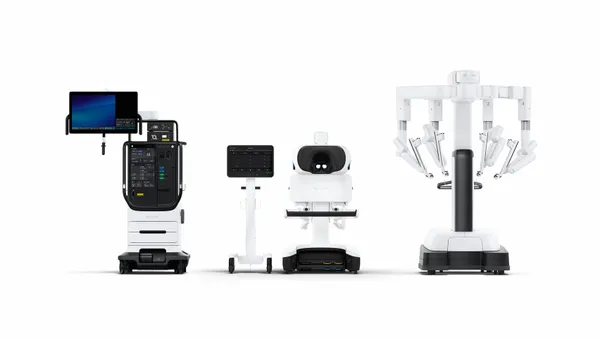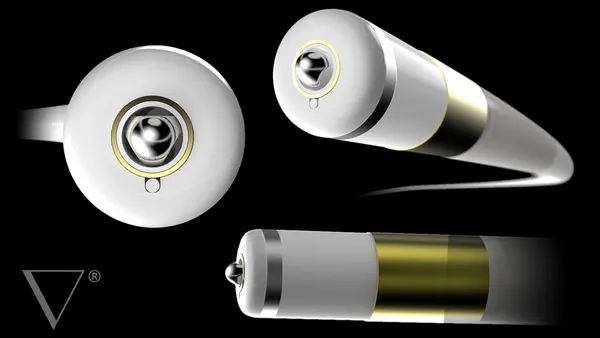UPDATE: Sept. 23, 2021: The U.S. Patent Trial and Appeal Board issued another split ruling in the long running dispute between Medtronic and Axonics, related to three more patents at issue. The board sided with Medtronic for most of the claims. PTAB did however invalidate claims related to recharging technology, for which Medtronic said it's weighing legal options. Axonics blasted Medtronic for claiming victory, calling it posturing and asserting "We refuse to be intimidated by Medtronic," as the case moves further through the legal system. Medtronic will now ask the U.S. District Court in the Central District of California to lift a stay on the IP infringement case.
Dive Brief:
- The U.S. Patent Trial and Appeal Board has issued a split decision on Axonics' effort to invalidate a Medtronic neuromodulation patent, upholding one claim while invalidating four others.
- Axonics challenged seven Medtronic patents last year as part of an ongoing dispute around its push to compete for neuromodulation markets. PTAB sided fully with Medtronic on two near-expiry patents but found Axonics' case against the third piece of intellectual property had merit.
- With PTAB upholding some claims while dismissing others, both sides expressed some satisfaction with the outcome of the case. Axonics plans to appeal parts of PTAB's ruling and Medtronic is turning its attention to the infringement lawsuit it filed.
Dive Insight:
Axonics and Medtronic have engaged in a back-and-forth patent dispute in recent years. Shortly after Axonics won premarket approval for its sacral neuromodulation system in 2019, Medtronic filed a lawsuit claiming the technology infringes on four of its patents. Axonics responded by challenging seven Medtronic patents, six of which PTAB agreed to review.
While rulings on three of the patents are still pending, PTAB has issued decisions on the other three. The first batch of decisions features two clear wins for Medtronic, although the impact of the rulings is dampened by the fact both patents will expire before the end of February.
The third patent is set to expire in 2026. Axonics challenged five claims made in the patent, all of which relate to a system for charging an implantable medical device through the skin. PTAB found four of the challenged claims to be invalid. However, the patent board upheld one of the challenged claims and a further eight claims were outside of the scope of the review.
Medtronic hailed the ruling as a "victory" while Axonics said it is "quite pleased" with the decision to invalidate four of the five challenged claims on the patent that will expire in 2026. Decisions on the other three patents, which Medtronic expects to receive within days, will determine the final tally of victories and losses.
The PTAB rulings are skirmishes in a bigger scrap between Axonics and Medtronic. Once Medtronic learns PTAB's ruling on the other three patents, it plans to ask the U.S. District Court in the Central District of California to resume proceedings in relation to the infringement lawsuit it brought against Axonics in 2019.
Axonics has weathered the legal attacks so far and grown its business. Last month, the company raised its full-year guidance to $186 million to $188 million, a 5% bump at the midpoint, after making inroads into the sacral neuromodulation market in the second quarter.
While Axonics beat Medtronic to market as the first manufacturer to have a rechargeable system with full-body MRI conditional labeling, the medtech giant in August 2020 received FDA approval for its InterStim Micro sacral neuromodulation system.
Medtronic last month announced financial results for its first quarter of fiscal year 2022, which ended July 30, reporting pelvic health revenue increased 134% driven by continued strong adoption of InterStim, which the company contends is the market's smallest rechargeable neurostimulator to treat overactive bladder, fecal incontinence and non-obstructive urinary retention.












